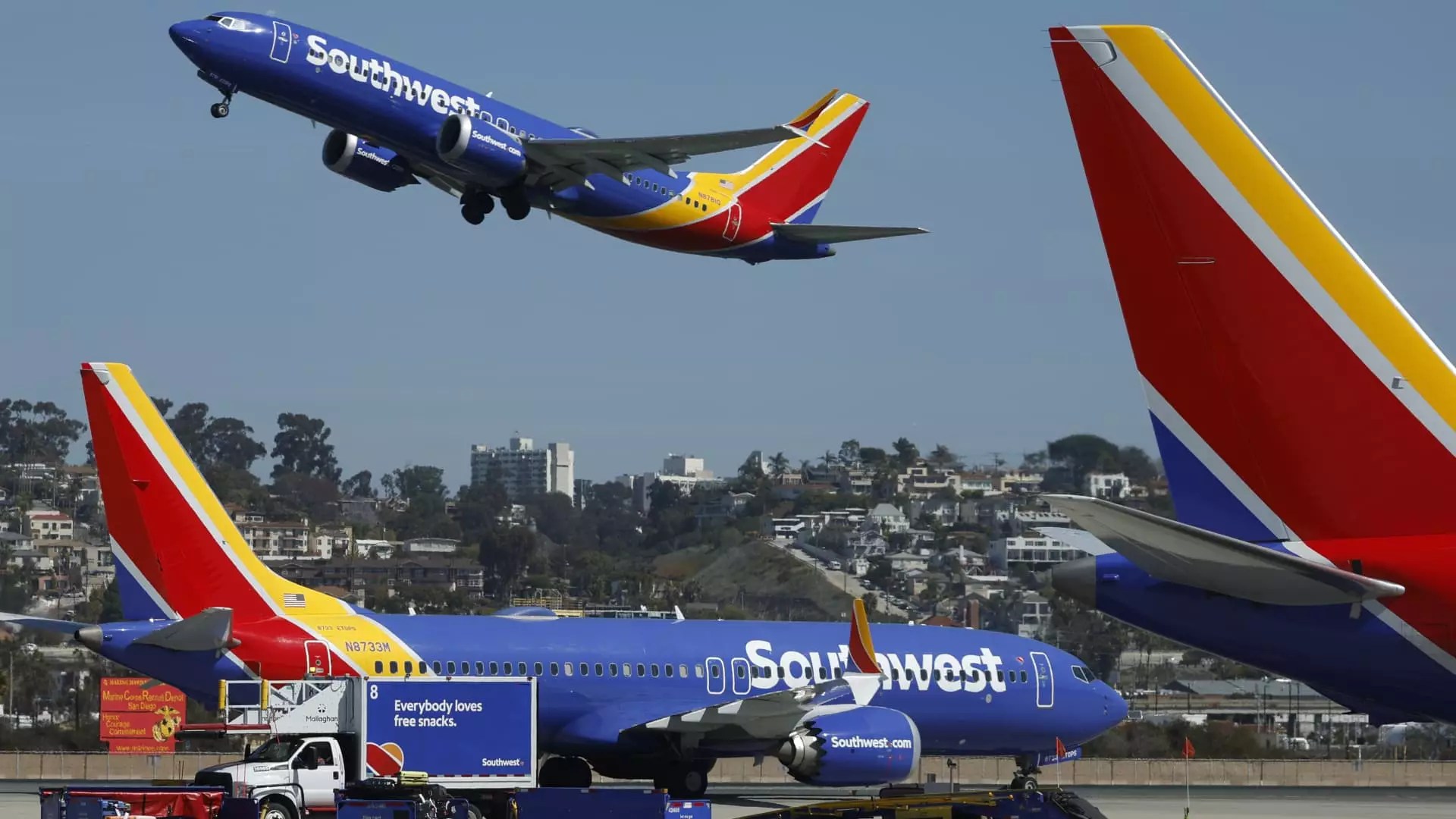In a bid to soar into a new age of profitability and customer retention, Southwest Airlines is navigating treacherous waters. The company’s CEO, Bob Jordan, recently hinted at a significant shift in the airline’s strategy: exploring airport lounges, premium seating options, and even long-haul international flights. While one might commend the initiative, beneath this veneer of progress lies a fundamental dilemma that could erode the very essence of what made Southwest Airlines a beloved carrier among the masses. The intention to cater to high-spending customers with luxurious offerings raises eyebrows and questions about whether or not this aligns with the company’s core mission of delivering consistent and affordable travel experiences to the average American.
Balancing Act Between Tradition and Innovation
In its 54 years of operation, Southwest Airlines cultivated a unique identity characterized by open seating and a simple bag-check policy. This commitment to a no-frills experience differentiated it from its competitors, who often indulged in premium features for elite customers. However, in an age where airfares are on a downward trajectory, pressured by competitors and an activist investor, the possibility of abandoning these longstanding principles becomes a pragmatic yet concerning route for the airline. In attempting to evolve, are they sacrificing the foundational customer-centric values that once set them apart, effectively trading them for a fleeting boost in revenue?
Jordan’s admission that many customers choose rival airlines because of their luxuries, such as lounges and premium services, reveals an underlying fear: a loss of market relevance. While the competition has multiplied luxury offerings, the question remains—how much innovation and premiumization will dilute Southwest’s inherent charm, potentially alienating its loyal customer base?
The Looming Specter of Class Disparity
With airlines like American and Delta capitalizing on the luxury travel segment, the specter of class disparity in air travel becomes a daunting prospect. Can Southwest maintain its commitment to democratized air travel while tapping into the more affluent market segment? The answer seems painfully complex. In the race to attract high-spending customers, will Southwest inadvertently forge a rift between its loyal customers and the ‘new elite’?
Just look at Nashville’s passionate travelers who have been vocal about their demands for lounges and first-class experiences. While it’s easy to see the allure of courting these customers, one can’t help but question whether catering to their desires might create a broader pattern of “two-tiered” service that weakens Southwest’s brand ethos.
International Cathedrals of Luxury
Jordan’s musings about possibly flying to Europe or adding other long-haul flights is an intriguing proposition. Yet it seems to ignore a crucial reality: success abroad often demands an unvarnished commitment to operational and service excellence. Making this leap would require more than newly acquired long-range aircraft; it demands a complete cultural overhaul and a rethinking of service protocols that prioritizes luxury over individuality. Would a Southwest Airlines plane touching down in Europe be the embodiment of efficiency and friendliness, or merely an extravagant echo of what we already have with legacy airlines?
This direction potentially reflects a broader trend in the industry—one in which monopolistic airlines become high-end hotels masquerading as transport providers, devoid of the warmth and approachability that initially won customer loyalty. If the brand becomes a mere provider of extravagant services, will it lose the trust and goodwill that has sustained it throughout its storied existence?
The Risk of Becoming Just Another Airline
In this uncharted territory, where Southwest is contemplating changes to open seating and its generous checked baggage policy, there’s a pervasive risk that it could dissipate into the homogeneous ether of airline experiences. The once-cherished identity that rewarded loyalty and provided financial accessibility appears strained under the weight of market competitiveness. While it’s rational to adapt to consumer demands, it must be approached with vigilance and introspection. Failing to conduct this exercise means not just risking market share but also diluting a time-honored legacy that truly set Southwest apart—from its charismatic and delightful employees to its rich culture of inclusivity.
The essential inquiry shouldn’t just be, “What does the market demand?” but instead, “What defines us and sets us apart?” If Southwest Airlines can harness the dual aims of remaining profitable while retaining its commitment to an egalitarian approach to travel, it may elevate itself to new heights. But if it pursues luxury zealously without internal reflection, it invites a fate all too common in the airline industry—where uniqueness withers in the pursuit of the almighty dollar.


Leave a Reply